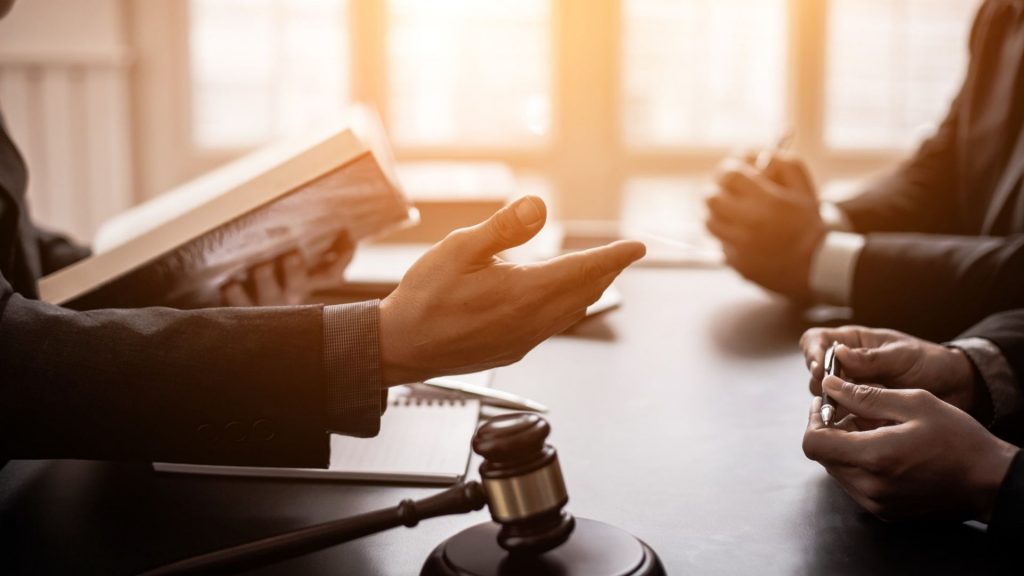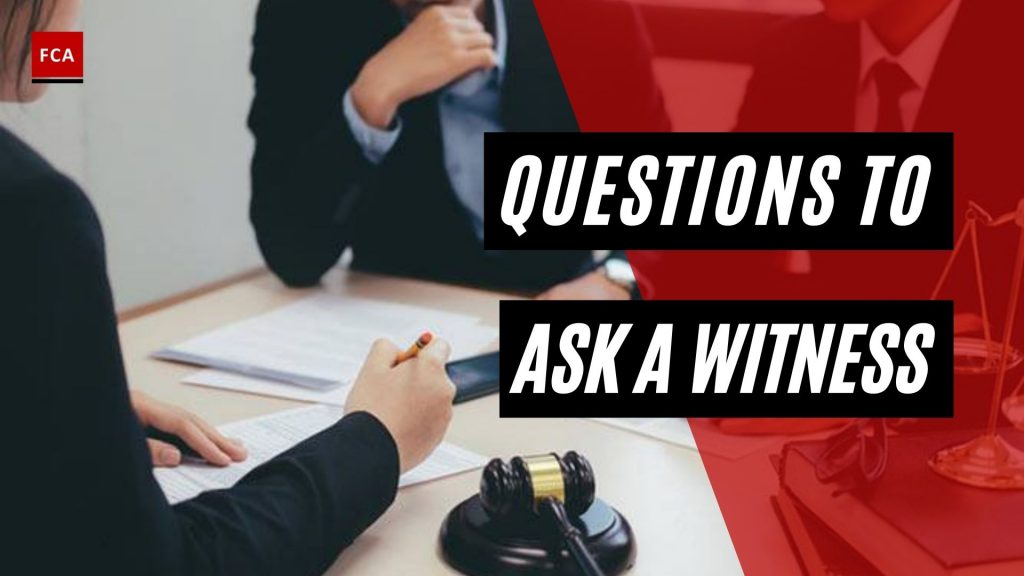Questions to ask a witness. Once the witness, a place for conducting the interview, and all the preliminaries are decided, the interviews can proceed. As the interview progresses, questions should be phrased to elicit a narrative answer, not a simple yes or no. The basic interrogatives of who, what, when, where, why, and how are most useful in formulating open-ended questions. A request such as “Please tell me how that account is verified at the end of the business day” is most productive. Leading questions should be avoided.

Questions To Ask A Witness
Questions should be as simple as possible, given the nature of the matter under investigation and the interviewee’s involvement in the matter. It is critical that the interviewee has a precise understanding of each question. If there is any doubt as to the interviewee’s understanding, the question should be rephrased.
The response to each question should be complete before another question is asked. Multiple open questions can result in mixed, multiple responses that must then be clarified to avoid confusion.
Witness interviews as part of an investigation are neither pre-trial depositions nor cross-examinations at trial. The purpose of the interview is simply to evoke honest, relevant information. The questions should therefore be framed and asked in a way designed to achieve this.
For a productive interview, bear in mind:
- Interviews are designed to attain knowledge, not disclose it. The witness should be talking 80% of the time.
- The interview should center around the specific wrongdoing at which the investigation is aimed. Transforming the interview into a wide-ranging inquisition into all possible areas of misconduct is counterproductive because it derails from the focus of the investigation.
- The interviewer should be alert to the possibility that the initial discovery of what appeared to be isolated misconduct maybe just a sign of a much larger problem.
- Sometimes, managers want to participate in or attend interviews of various witnesses. This can have a stressful effect on the witness. Therefore, it is best to conduct interviews with employees without their managers present.
- A non-confrontational tone should be used. A witness is more likely to cooperate with someone he feels comfortable with rather than someone he considers threatening. There may be times when it is essential to take a harsher approach. Nonetheless, firstly, it is almost always beneficial to try a more disarming approach.
- Ask questions in chronological or other systematic order. Confusing questioning will lose the witness’s train of thought and risk missing information.
- Don’t expect the witness to have an exact recollection of events that occurred some time ago. Even honest people don’t remember everything. Witness’ recollection must be refreshed with documents or other information.
- There are no magic questions to ask when interviewing someone. But the who, what, where, when, why, and how questions are a fail-proof way of getting the most information of the interviewee.
- However, avoid asking why questions until the end. These questions are usually antagonistic as they sound moralistic.
- Ask open-ended questions. Open-ended questions more likely result in learning what the witness knows. “Who was there?” “What was said?” “Why did you do that?” Open-ended questions force the witness to respond. They help in learning about the subject based on how the witness describes himself. They help the witness relax.
- Don’t ask close-ended questions. This type of question often needs a “yes” or “no,” or a brief statement at most. These questions do not allow detailed responses and, as a rule, do not cause the witness to relax. The witness is more likely to answer and then stop talking.
- Ask straightforward questions. Avoid being cute, tricky, or shrewd.
- The basis of the witness’ knowledge is always essential. Determine whether the witness is speaking from personal knowledge or just relying on the hearsay statements of others. “How do you know that?” is a question to ask often.
- Ask the witness to list all individuals who know of any of the events. “Who else might know?” is a question to ask often.
- Asking short, simple questions is likely to provide responsive answers.
- Distinguish between words used by the witness and situations where the witness simply agrees with a question or statement. Consider the wording of leading questions and whose words were used.
- The investigation should identify any mitigating instances that may affect the assessment of fault, such as personal or health problems.
- Try to structure questions that do not call attention to particular problem areas. The order of questions well, as the demeanor in which they are asked, can alert a witness to the focus on the severity of the problem being investigated. If there is something that should be kept highly confidential, care should be taken in structuring and asking the questions to the witness.
- Save unfriendly or embarrassing questions until the end of the interview. Beginning with the tough questions may cause the witness to become defensive.
- On key factual questions, it may be important to return to the same question more than once in different ways. People often remember things in waves, and this approach may develop additional detail.
- If a person does not remember, try to help by asking questions that help recall the situation when the event occurred but do not suggest an answer.
- Silence is a great technique. Many people cannot stand silence and find this unnerving. They will fill up the void with talk, often saying something they had no intention of uncovering. The average person expects no more than seven seconds of silence during a conversation. If nothing is said after the witness answers a question, the witness will give more information than he intended to give. The silence effectively pressures the subject into offering more information by communicating that that the answer was incomplete. Silence can also be an effective way to undermine a witness who is cocky and confident in their own ability to control the discussion. The goal is to make the witness uncomfortable with the silence.
- Avoid doing anything that might be taken as an attempt to influence the witness’ answers. Avoid characterizing the company’s position, summarizing the statements of other witnesses, or selectively presenting documents in a way that may distort the facts.
- There is always the possibility that the information the witness is giving contradicts either something they said earlier or a piece of information collected from another source. One of the most effective techniques is to note the contradictions and then, at the appropriate point, ask the witness how these contradictory facts could be true.
- At the end of the interview, confirm whether there is anything else the interviewee would like to share? It is integral to document these open-ended questions to support the fact that the witness was asked for all relevant information.
Final Thoughts
You can begin questioning your witnesses one by one by asking them their names and some background information, such as how they know the parties involved in the case. You’ll then have to start questioning them about what they saw or any other issue they’re there to testify about. It’s best if you can plan ahead of time with your witnesses so you know what they’ll say.








